- Home
- James Hadley Chase
Get a Load of This Page 15
Get a Load of This Read online
Page 15
She shook her head. “I’ll wait here,” she said.
Quentin shrugged. “O.K., I won’t keep you long.”
He went back to Morecombre’s room. Anita, the manager and Morecombre were busy with tins when he entered. Morecombre said, “What’s she like?”
Quentin made curves with his hands. “Very nice, but very cold and up-stage,” he said, taking a cup of coffee from Anita. “Listen,” he went on to the manager, “you gotta car? I want to run her over to the consul’s place. I guess that’ll be the best place for her.”
The manager nodded. “I have a car,” he said. “She can go in it by all means, but there is too much fuss; there will be no trouble, you see.”
As Quentin turned to leave the room, the door was thrown open and two Cuban soldiers with rifles and fixed bayonets slid in, taking up positions each side of the door.
The manager went very white and sat petrified. Anita’s big eyes opened and a tiny scream fluttered at her mouth.
Quentin said coldly, “What the hell’s this?”
In the passage, just outside the door, stood a thin little man, dressed in the white-and-gold uniform of a Cuban general. His coffee-coloured face reminded Quentin of a vicious, startled little monkey. One claw-like hand rested on a revolver strapped to his waist.
The manager said faintly, “Can I be of any service, General?”
The little man didn’t even look at him. He was staring at Quentin very thoughtfully. Then he walked into the room and one of the soldiers carefully shut the door.
The little man introduced himself. “General Fuentes,” he said, clicking his heels. “Who are you?”
“My name is George Quentin of the New York Post. This is my colleague, Mr. Morecombre, of the New York Daily. This is a very fortunate meeting.”
The General raised his eyebrows. “That is a matter of opinion,” he said tartly. “What are you doing here? I understood all visitors had left the town.”
“You’re probably right,” Quentin returned, “but we are on business here.”
“So I thought.” The General’s eyes gleamed. “I’m afraid you both must consider yourselves under arrest. It is not good that newspaper men should be here at this time.”
“Really, General,,” Quentin said, shaking his head, “you can’t do that. We are American citizens, and we are entitled to remain here as long as we like. You have no power to arrest us, and I think you know it.”
Fuentes touched his neat, close-clipped moustache with his fingers. “Owing to the present emergency,” he said, “the Government have special powers. I repeat, you both are under arrest. You are not to leave the hotel without permission. Should you fail to obey this order you will be shot without mercy.” He looked at the other two. “And this also applies to you.”
Morecombre pushed himself out of his chair. “Say, listen, General,” he said, “you can’t pull a thing like this. We’re here to represent our papers, and we’ve got to have our freedom of movement.”
Fuentes shrugged. “You can please yourself about that,” he said dryly. “I shall regret any accident, but you can’t say that you were not warned.” He looked across to the manager. “Any other American in this hotel?” he demanded.
The manager hesitated, but Quentin moved forward. “I can answer your question, General,” he said quietly. “There is a lady here, under my charge. She is going to the consul this morning.”
Fuentes shook his head. “I don’t think so. She will stay here. Where is she?”
Quentin kept his temper with difficulty. “This attitude you’re adopting isn’t going to get you anywhere,” he said. “The lady missed the ship last night. She is entitled to go to the consul without interference.”
Fuentes turned on his heel. “Come,” he said to the soldiers, “find this woman.”
Quentin followed him out into the corridor. “As you’re determined to play this little drama to its conclusion, I’ll take you to her.”
Fuentes eased his revolver slightly in its holster. “You have a great deal to say for yourself, haven’t you?” he said. “I should be careful how you choose your words.”
Quentin walked across to Myra’s door and knocked. She came immediately, and stood looking first at him and then at the little General.
Quentin said: “I’m afraid you will have to alter your plans, Miss Arnold. This is General Fuentes of the President’s Army. He has just told me that all Americans in this building are under arrest and are not at liberty to leave. He has made it quite plain that should they do so, they will be shot.”
Fuentes had been looking at Myra steadily. He made no attempt to disguise his admiration. He drew himself up and bowed. “I am exceedingly sorry that I must insist on you remaining in the hotel, senorita, but I shall be delighted to offer my services as host, if you will permit me. I understand the hotel is short of food, and I have plenty. It would afford me great pleasure if you took your meals with me.”
Myra moved her head slightly, bringing the General in line with her vision. She studied him, her blue eyes slowly growing cold and her mouth hardening, but before she could speak, Quentin said gently: “I think that is generous of you, General, but Miss Arnold is in my charge. We are fortunate to have a stock of food, and she has her meals with us.”
Fuentes smiled. He looked genuinely amused. “I am busy now,” he said, “there is much to be done. When I have a little spare time, I shall ask the senorita again.” He bowed, then added, “It would be absurd to refuse.” He turned on his heel and stalked down the passage. The two soldiers followed him and took up positions at the head of the stairs.
Quentin pulled a face. “I’m afraid that guy is going to be difficult,” he said.
Myra said: “But can’t we phone to the consul? Surely we can’t be held long!”
“We couldn’t get any calls through,” Quentin returned. “No doubt he has a man on the switchboard. I think, Miss Arnold, it would be safer for you if you came over and joined us in the other room.”
Myra picked up a little white satin handbag. “I’m afraid I’m being a fearful nuisance,” she said; “it is very kind of you to bother with me.”
Quentin eyed her thoughtfully. She didn’t realize just how much of a nuisance she was going to be. Fuentes had obviously fallen for her in a big way, and when Cuban generals fall for nice-looking girls, they don’t stop at patting their hands. At the best of times a swell looker is out of place in a revolution, but when she’s parked right in the stronghold of one of the big shots, the mug who undertakes to protect her might just as well make out his will. There wasn’t much Quentin could do. They were all in the hotel as prisoners, so he might just as well offer her his protection as not. There was no side-stepping the issue.
He introduced her to Morecombre, who seemed rather awestruck at her beauty. Anita went over by the window and watched Myra out of the corner of her eye. She was smart enough to know that she didn’t stand much chance with the two Americans so long as this girl was around.
Quentin poured Myra out a cup of coffee and Morecombre hastily prepared breakfast for her. She sat in a chair, rather tense, rather hostile, and a little frightened.
“I don’t know how long we shall be here, but we must watch the grub,” Quentin said. He looked over at the manager. “You’d better get downstairs and see if they’ve taken over the hotel services. If not, see what you can do about hustling up some more grub.” He swung round to Anita. “I want an outfit for senorita right away. She can’t live in these clothes she has. Go and rake up something.” He went over and slipped twenty dollars into Anita’s hand.
She looked at it, bit her lip and then handed it back. “I don’t need the money to do that,” she said. “She can have some of my clothes. Would that do?”
Quentin hooked his finger in the front of her dress and dropped the note into the hollow. “Yeah,” he said, with his big, lazy grin, “that’ll do fine. Take the dough, baby; you might need it one of these days.”
Sh
e went out of the room without smiling at him.
As soon as she had gone and they were alone, he said: “Now we’ve got a moment to ourselves, we might as well consider our position. Quite frankly, I don’t like it too much.”
“What are you beefing about?” Morecombre asked. “We’re all right, ain’t we?”
“For the time being,” Quentin agreed, “but if trouble starts we shall be between two fires. If the natives come here and succeed in forcing an entry, everyone will be knocked off, including we three. If they don’t get in, Fuentes might think it a good idea to get rid of us rather than risk us raising the dust about being arrested like this.”
“For Gawd’s sake,” Morecombre said, staring, “he wouldn’t do that?”
Quentin shrugged. “He might. Then there is Miss Arnold here. She’s in rather a difficult position. Apparently the General has got ideas about her—ideas which will take a little checking.”
Myra shivered. “What am I going to do?” she asked.
“That’s what we’ve got to think about. Did you bring a gun with you, Bill?”
Morecombre nodded. “Yeah,” he said, “I always carry one. Did you?”
Quentin patted his pocket. “I don’t say we’ll get anywhere with rough stuff, but it’s nice to know, in case we have to start something.” He went to the window and looked down at the deserted waterfront. “No one about,” he said. “It looks as if something is blowing up. You can’t hear a sound. I’m willing to bet that any moment the lid’s coming off.”
Morecombre crossed over and stood just behind him, looking over his shoulder. Myra hesitated, put her coffee-cup down and joined them.
Quentin said unemotionally, “Look, it’s starting”—he pointed down. “Good God, Bill, we ought to be down there. We ought to get to a telephone. Look over there. Do you see those guys coming out of that house? Look, they’re carrying rifles. They’re not soldiers… they’re dockers. Dockers with rifles…. I told you how it’d be. There they go. Nothing’s going to happen until they run into the soldiers… that’s when the lid will come off.”
“Anyway, I can get pictures,” Morecombre said. “I’m mighty glad I brought the telescopic attachment with me.” He rushed across the room and feverishly began setting up his camera.
Myra edged closer to Quentin. “Do you really think there will be fighting?” she asked.
Quentin didn’t take his eyes off the little group of men making their way cautiously along the waterfront. “I guess so,” he said shortly. “Those guys are itching to let those cannons off…. I don’t blame them really.”
Morecombre came back and set up the camera on a short-legged tripod. He hastily made adjustments, focusing on the men below. From where they stood they had an uninterrupted view of the whole of the winding waterfront.
Quentin stepped back into the room. “It would be as well to keep out of sight as much as possible,” he said to Myra. “These guys are going to shoot at anything.”
From just inside the verandah they watched the small group of men move slowly along the waterfront. They moved very cautiously, pausing outside each cafe, their rifles at the ready. No one disturbed them. Whether the word had gone out that they were starting something, Quentin didn’t know, but no one interfered with them; even the dogs slid into the dark alleys at their approach. Finally, they turned off the waterfront and made their direction inland. The three watchers lost sight of them.
Quentin went over to the sideboard and poured out three long gin slings. He handed them round in silence.
Morecombre sat back on his heels; he still kept near the window. “Fell a little flat, didn’t it?” he said. “Thought this was where it was going to start.”
Quentin shook his head. “It’s started all right,” he said. “In a day or so there’ll be as much trouble as anyone can handle here. That little gang will be wiped out. Then a bigger gang will turn up and they’ll go the same way. Then a bigger gang still will appear, and maybe a number of them will get away and join the next band. It takes time to get a real revolution going. These guys don’t have much chance to organize.”
Morecombre got up and stretched his legs. “Maybe we’re in the safest spot. I don’t fancy running around the streets with that sort of stuff going on.”
Quentin didn’t answer. He glanced over at Myra, and his lips tightened. If she wasn’t there, he would have been a lot happier. Maybe Fuentes would have left them alone but for her. There was always trouble when a woman turned up in a spot like this.
A tap sounded on the door and Anita came in. She carried a bundle of clothes over her arm. “Senorita is welcome to these,” she said, looking first at Myra and then at Quentin.
Myra took them from her. “It is very kind of you,” she said.
Anita shrugged. “They will not make senorita less attractive,” she said. There was a malicious look in her eyes as she said it. She went out without looking back.
Morecombre ran his fingers through his unruly hair. “That dame is mad about something,” he said. “I didn’t like the dirty look, did you?”
Quentin went over and opened the bedroom door. “You can change in there,” he said. “I’m sure you will feel much more comfortable out of that evening affair.”
Myra said: “I will. Please don’t worry about me any further. You must have a lot to think about. I can manage now very well.” She went into the room and shut the door.
Morecombre heaved a sigh. “That’s very nice, isn’t it?” he said, jerking his head towards the door. “A little cold and standoffish, but she’d make a swell tumble, huh?”
Quentin lit a cigarette. “I don’t think you’re the only guy with that idea,” he said.
“Fuentes?”
“Yeah, that’s where the trouble’s going to start for us. We can’t very well stand by and let that punk go for her, can we?”
“Like hell,” Morecombre said. “If he starts anything like that, I’ll knock him into next week.”
“At least, that’s what you’ll try to do,” Quentin said dryly. “Actually, the guy has some forty soldiers to help him.”
Morecombre sniffed. “Oh, I guess we could manage them together. I wouldn’t like to try it on my own, but, with you, I guess we’d get by.”
“Sure,” Quentin said dubiously. “But all the same, I wish she hadn’t turned up like this.”
He went back to the window and continued to stare into the deserted streets. Morecombre joined him, and for a while they stood silent, watching the sun gradually fall behind the horizon.
3
In the evening it became cooler. The slight breeze coming in off the bay stirred the net curtains of the verandah window.
Morecombre sat by the window, smoking a pipe, his eyes never shifting from the deserted waterfront. Quentin lay on the divan with his eyes shut, and an open book lying across his chest. Myra sat away from them, trying to read, but every sound from outside, and every step in the corridor, made her stiffen.
They had just finished a snack meal from the assortment of canned food, and Quentin was mentally calculating how long that small store would last them. He opened his eyes and glanced across at Myra. She was looking away from him, unaware that he was watching her. He thought she looked absurdly young in the short, black silk dress Anita had lent her. Her long legs in shiny black stockings and the touch of white under her dress, which he could glimpse from the angle he was lying, brought a frown to his face. She was too good, he decided. Her fair hair, like a sheet of shining metal, reflected in the soft light of the reading-lamp. He liked her long, thin fingers, and the curve of her arms. He studied her face thoughtfully. The hard curve of her mouth puzzled him. The expression on her face made him grope for the right word—disillusion. Yes, that was it.
He found himself wondering what had happened on the previous night. Why she was unescorted? How she came to miss the ship. All day she had been very silent. Obviously she was grateful to them for offering her hospitality, but there it ended. She ha
d erected a barrier which neither Morecombre nor he could break through. In the long hours of waiting and listening for something to happen, both the men would have been glad to have been on their own. This constant small talk that led nowhere and social politeness which neither found to his mood had become irksome. Quentin found himself wishing that she would go away, but she had sat quietly in the chair all the long afternoon, speaking when spoken to, but otherwise retaining a brooding silence.
Both the men had given up finally in despair, and for the past hour there was a heavy strained silence, broken only by the rustle of a turning page and the creak of a chair, as Morecombre shifted from one position to another.
Suddenly from out of the darkness came three rifle-shots. They sounded very close. Morecombre sprang to his feet. “Did you hear that?” he asked, rather unnecessarily.
Quentin was already up and crossed the room to turn out the light. Then he stumbled over to the window and peered out. But for the flickering lights on the waterfront he could see nothing. They listened in the darkness. Faintly they could hear someone shouting, and then two more shots sounded. This time they caught a glimpse of the flash from a rifle. It was just outside the hotel.
“Maybe the sentry’s gettin’ the wind-up,” Quentin said. “I noticed a man at the gate this afternoon.”
Morecombre fumed. “He must be shooting at something,” he said, going out on to the verandah.
Quentin reached forward and jerked him back. “Keep off there, Bill,” he advised. “In this moonlight you’d be quite a target.”
Morecombre hastily stepped into the room and put on the light again. “Well, I suppose this is about all we can do,” he said irritably, “just sit around and wonder. I tell you I’m getting mighty fed up with doing nothing.”
The door jerked open, and a young lieutenant walked in. Behind him stood two soldiers, their rifles hovering in the direction of the two Americans. “You’ll pardon me,” the Lieutenant said in careful English, “for interrupting you.”

 Come Easy, Go Easy
Come Easy, Go Easy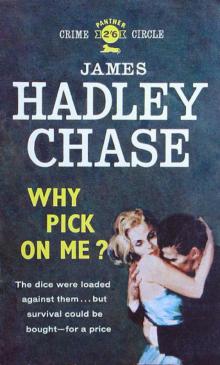 Why Pick On ME?
Why Pick On ME?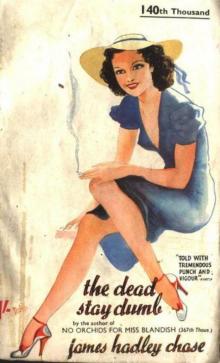 The Dead Stay Dumb
The Dead Stay Dumb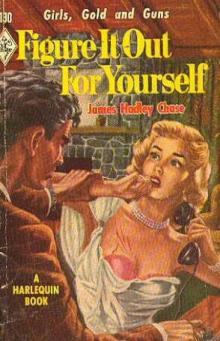 Figure it Out For Yourself
Figure it Out For Yourself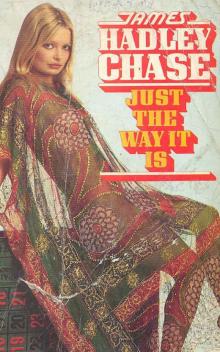 1944 - Just the Way It Is
1944 - Just the Way It Is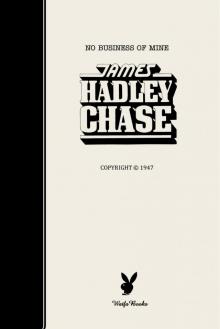 No Business Of Mine
No Business Of Mine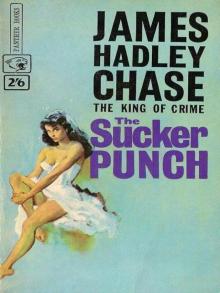 1953 - The Sucker Punch
1953 - The Sucker Punch Cade
Cade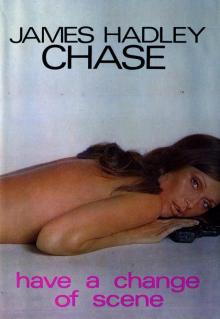 1973 - Have a Change of Scene
1973 - Have a Change of Scene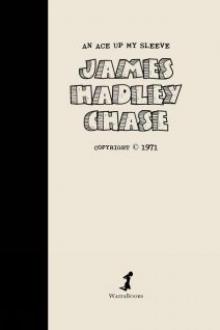 An Ace up my Sleeve
An Ace up my Sleeve 1968-An Ear to the Ground
1968-An Ear to the Ground 1950 - Figure it Out for Yourself
1950 - Figure it Out for Yourself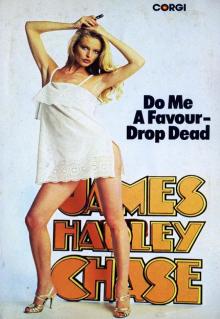 1976 - Do Me a Favour Drop Dead
1976 - Do Me a Favour Drop Dead The Flesh of The Orchid
The Flesh of The Orchid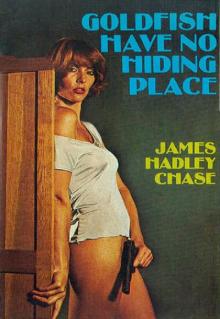 1974 - Goldfish Have No Hiding Place
1974 - Goldfish Have No Hiding Place Whiff of Money
Whiff of Money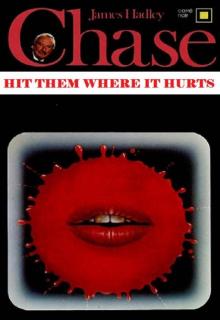 1984 - Hit Them Where it Hurts
1984 - Hit Them Where it Hurts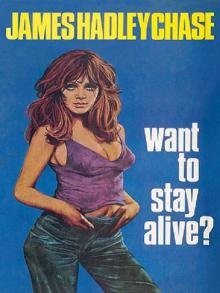 1971 - Want to Stay Alive
1971 - Want to Stay Alive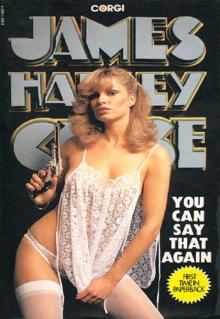 1980 - You Can Say That Again
1980 - You Can Say That Again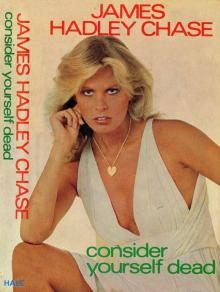 1978 - Consider Yourself Dead
1978 - Consider Yourself Dead The Paw in The Bottle
The Paw in The Bottle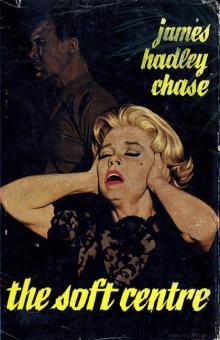 Soft Centre
Soft Centre The Guilty Are Afraid
The Guilty Are Afraid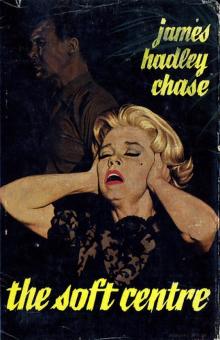 The Soft Centre
The Soft Centre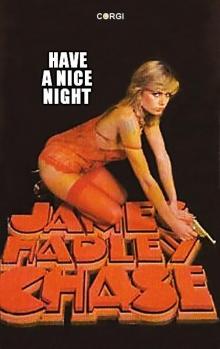 Have a Nice Night
Have a Nice Night 1957 - The Guilty Are Afraid
1957 - The Guilty Are Afraid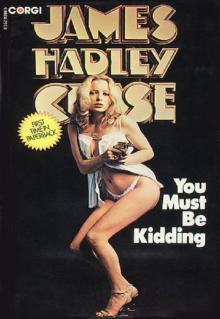 1979 - You Must Be Kidding
1979 - You Must Be Kidding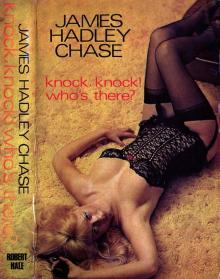 Knock, Knock! Who's There?
Knock, Knock! Who's There?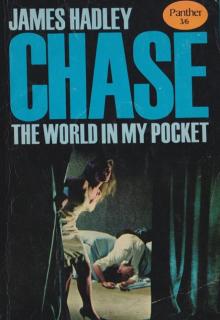 1958 - The World in My Pocket
1958 - The World in My Pocket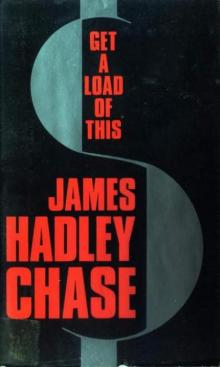 Get a Load of This
Get a Load of This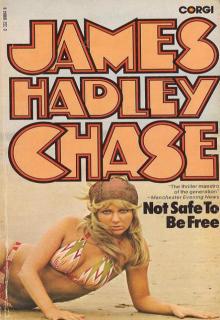 1958 - Not Safe to be Free
1958 - Not Safe to be Free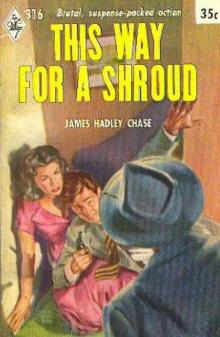 This Way for a Shroud
This Way for a Shroud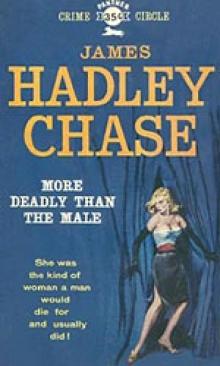 More Deadly Than the Male
More Deadly Than the Male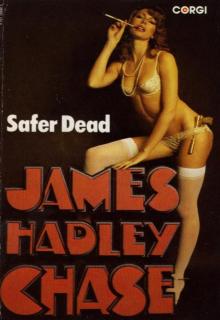 Safer Dead
Safer Dead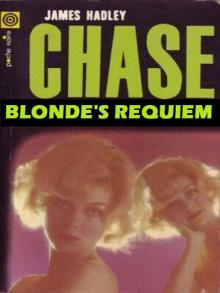 1945 - Blonde's Requiem
1945 - Blonde's Requiem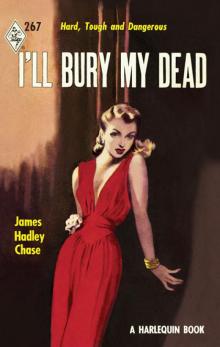 I'll Bury My Dead
I'll Bury My Dead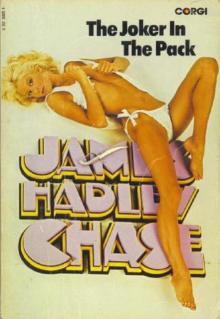 1975 - The Joker in the Pack
1975 - The Joker in the Pack 1972 - Just a Matter of Time
1972 - Just a Matter of Time 1954 - Mission to Venice
1954 - Mission to Venice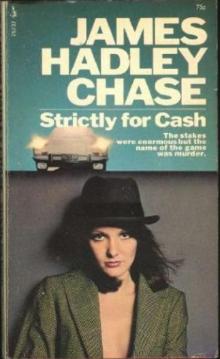 Strictly for Cash
Strictly for Cash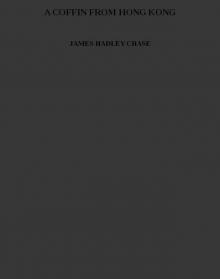 A COFFIN FROM HONG KONG
A COFFIN FROM HONG KONG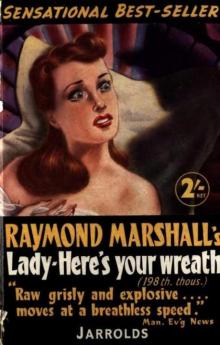 Lady—Here's Your Wreath
Lady—Here's Your Wreath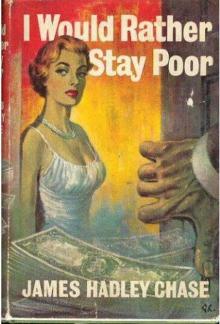 I Would Rather Stay Poor
I Would Rather Stay Poor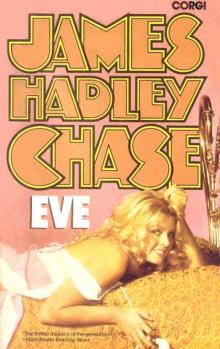 Eve
Eve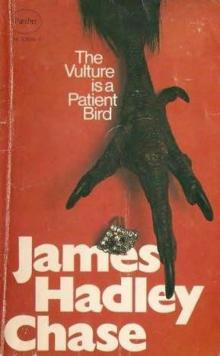 Vulture Is a Patient Bird
Vulture Is a Patient Bird 1979 - A Can of Worms
1979 - A Can of Worms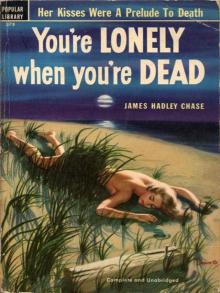 1949 - You're Lonely When You Dead
1949 - You're Lonely When You Dead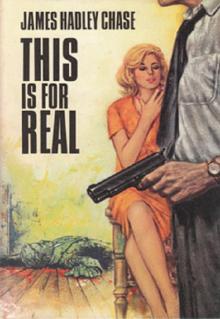 1965 - This is for Real
1965 - This is for Real (1941) Miss Callaghan Comes To Grief
(1941) Miss Callaghan Comes To Grief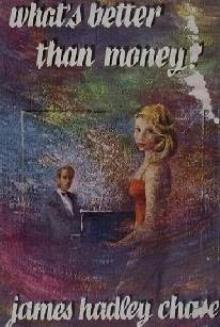 What`s Better Than Money
What`s Better Than Money This is For Real
This is For Real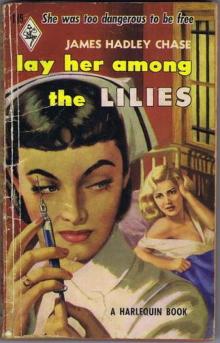 Lay Her Among the Lilies vm-2
Lay Her Among the Lilies vm-2 Knock Knock Whos There
Knock Knock Whos There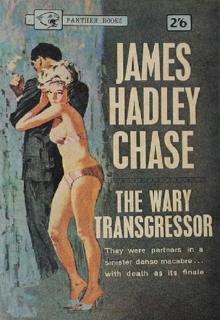 1952 - The Wary Transgressor
1952 - The Wary Transgressor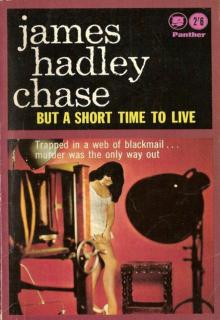 1951 - But a Short Time to Live
1951 - But a Short Time to Live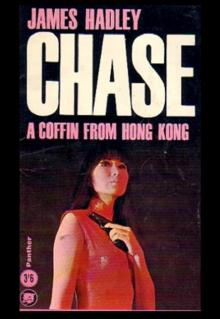 1962 - A Coffin From Hong Kong
1962 - A Coffin From Hong Kong Tell It to the Birds
Tell It to the Birds Well Now, My Pretty…
Well Now, My Pretty…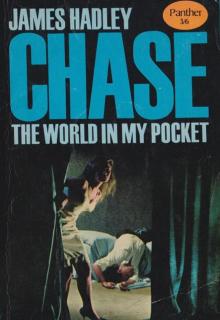 The World in My Pocket
The World in My Pocket A Lotus for Miss Quon
A Lotus for Miss Quon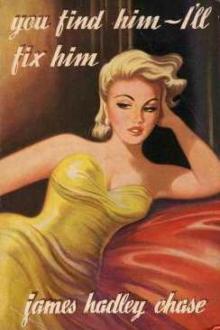 You Find Him, I'll Fix Him
You Find Him, I'll Fix Him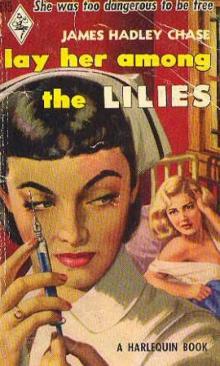 Lay Her Among The Lilies
Lay Her Among The Lilies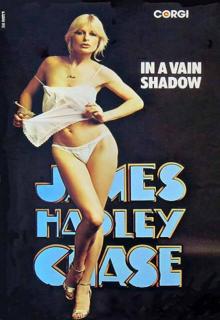 1951 - In a Vain Shadow
1951 - In a Vain Shadow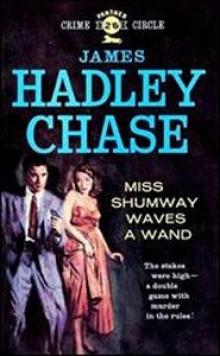 Miss Shumway Waves a Wand
Miss Shumway Waves a Wand 1953 - This Way for a Shroud
1953 - This Way for a Shroud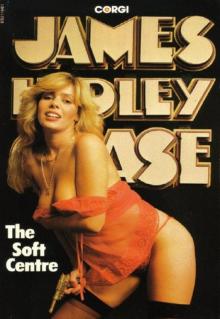 1964 - The Soft Centre
1964 - The Soft Centre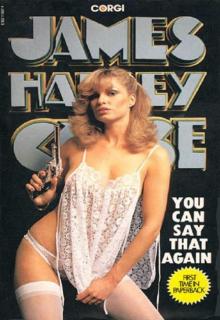 You Can Say That Again
You Can Say That Again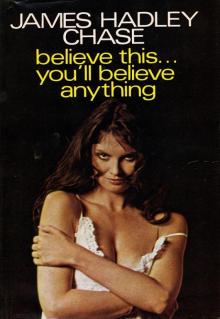 1975 - Believe This You'll Believe Anything
1975 - Believe This You'll Believe Anything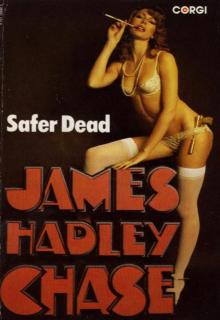 1954 - Safer Dead
1954 - Safer Dead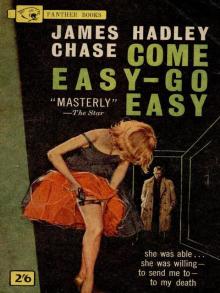 1960 - Come Easy, Go Easy
1960 - Come Easy, Go Easy Shock Treatment
Shock Treatment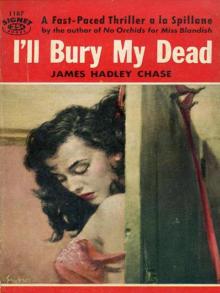 1953 - I'll Bury My Dead
1953 - I'll Bury My Dead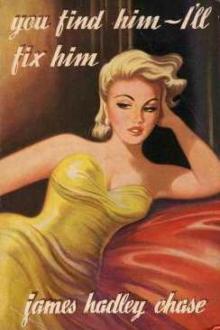 You Find Him – I'll Fix Him
You Find Him – I'll Fix Him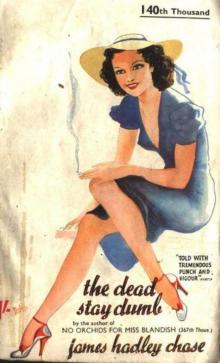 Dead Stay Dumb
Dead Stay Dumb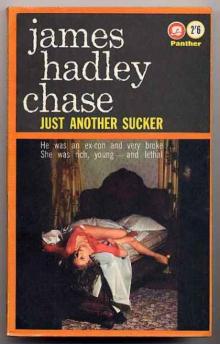 Just Another Sucker
Just Another Sucker Well Now My Pretty
Well Now My Pretty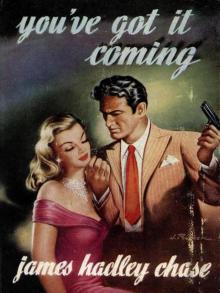 You've Got It Coming
You've Got It Coming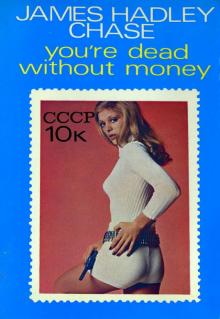 1972 - You're Dead Without Money
1972 - You're Dead Without Money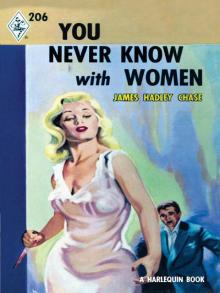 1955 - You Never Know With Women
1955 - You Never Know With Women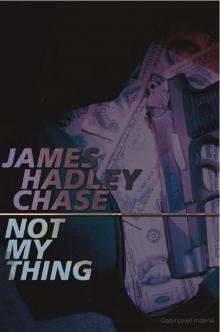 Not My Thing
Not My Thing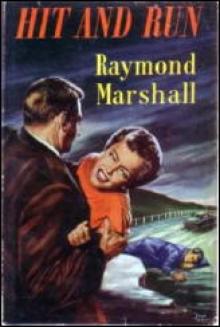 Hit and Run
Hit and Run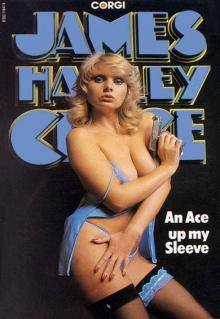 1971 - An Ace Up My Sleeve
1971 - An Ace Up My Sleeve 1970 - There's a Hippie on the Highway
1970 - There's a Hippie on the Highway 1968 - An Ear to the Ground
1968 - An Ear to the Ground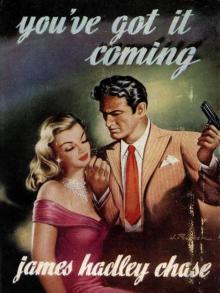 1955 - You've Got It Coming
1955 - You've Got It Coming 1963 - One Bright Summer Morning
1963 - One Bright Summer Morning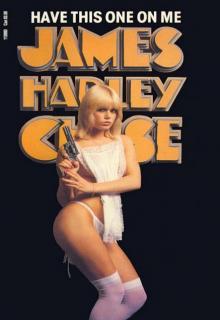 1967 - Have This One on Me
1967 - Have This One on Me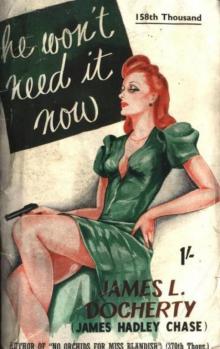 He Won't Need It Now
He Won't Need It Now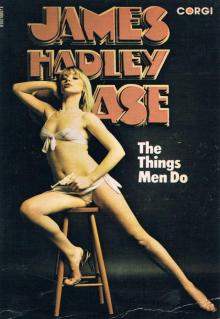 1953 - The Things Men Do
1953 - The Things Men Do Believed Violent
Believed Violent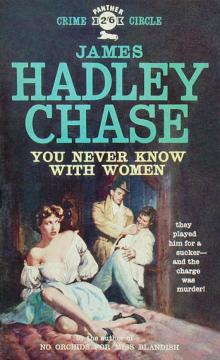 You Never Know With Women
You Never Know With Women Miss Callaghan Comes to Grief
Miss Callaghan Comes to Grief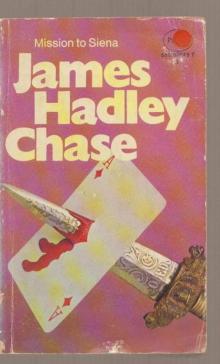 Mission to Siena
Mission to Siena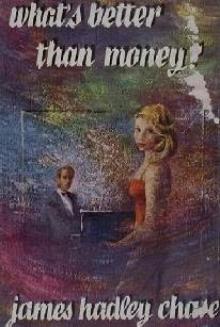 What's Better Than Money
What's Better Than Money Trusted Like The Fox
Trusted Like The Fox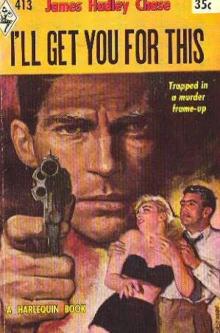 I'll Get You for This
I'll Get You for This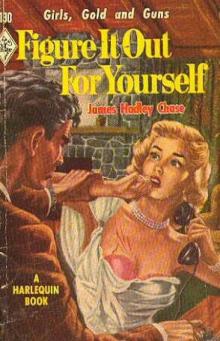 Figure It Out for Yourself vm-3
Figure It Out for Yourself vm-3 Like a Hole in the Head
Like a Hole in the Head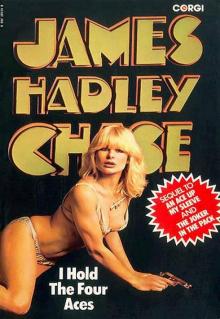 1977 - I Hold the Four Aces
1977 - I Hold the Four Aces 1969 - The Whiff of Money
1969 - The Whiff of Money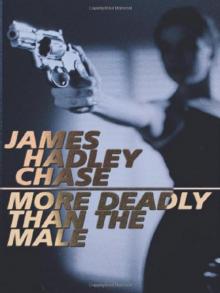 1946 - More Deadly than the Male
1946 - More Deadly than the Male 1956 - There's Always a Price Tag
1956 - There's Always a Price Tag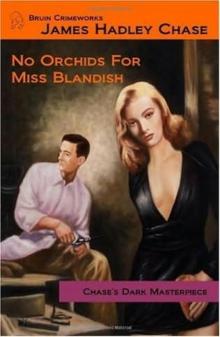 No Orchids for Miss Blandish
No Orchids for Miss Blandish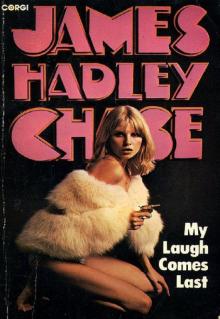 1977 - My Laugh Comes Last
1977 - My Laugh Comes Last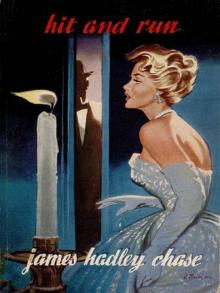 1958 - Hit and Run
1958 - Hit and Run 1981 - Hand Me a Fig Leaf
1981 - Hand Me a Fig Leaf 1966 - You Have Yourself a Deal
1966 - You Have Yourself a Deal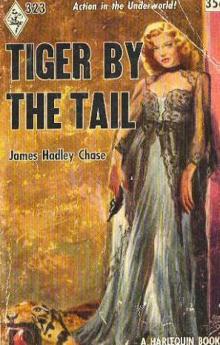 Tiger by the Tail
Tiger by the Tail